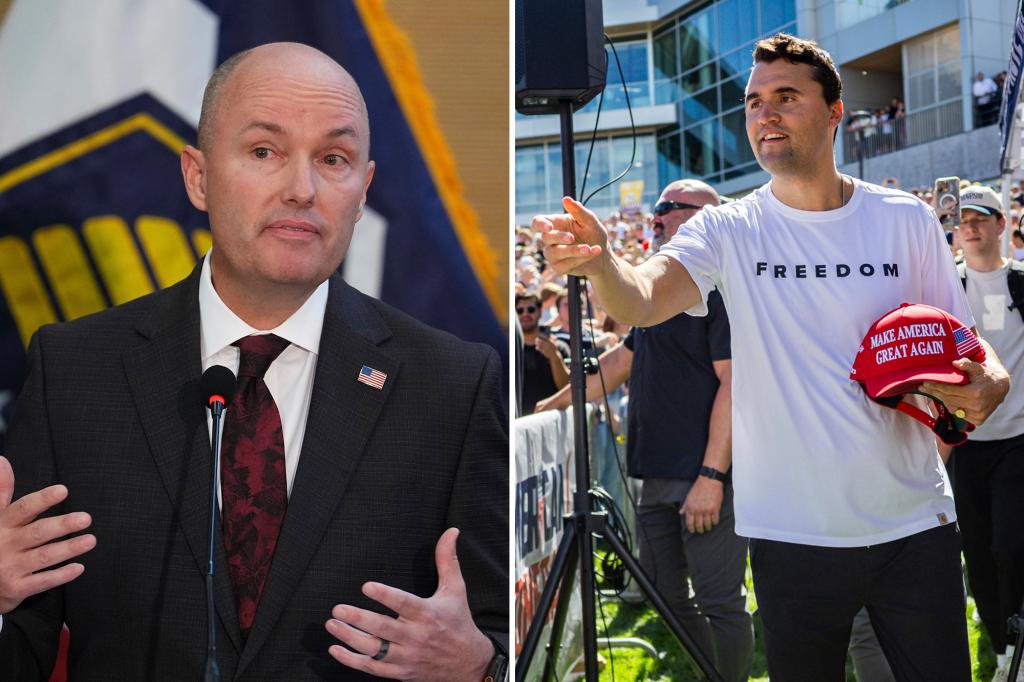Governor Urges Social Media Abstinence Following Charlie Kirk Tragedy
In the wake of the shocking assassination of Charlie Kirk, Utah Governor Spencer Cox has made a passionate appeal to the public to disconnect from social media platforms, which he described as a “cancer on our society.” During a heartfelt press conference, Governor Cox, now in his second term at age 50, expressed profound concern about the circulation of graphic images depicting the 31-year-old conservative activist’s shooting death. He emphasized that humans aren’t biologically equipped to process such violent imagery, suggesting our psychological well-being is at stake when we consume such content. The governor’s plea extended beyond this single incident, as he also referenced the viral footage of Ukrainian refugee Iryna Zarutska’s tragic stabbing on a Charlotte light-rail train, reinforcing his message that witnessing human death through digital screens is fundamentally harmful to our collective mental health.
“Social media is a cancer on our society right now,” Cox stated with unmistakable conviction, encouraging citizens to “log off, turn off, touch grass, hug a family member, go out and do good in your community.” His words reflect a growing concern among leaders about the psychological impact of constant exposure to traumatic content online. Rather than engaging with the digital fury that often follows such events, Cox suggested returning to real-world connections and community engagement as healthier alternatives. This perspective represents an increasingly common sentiment among public officials who witness firsthand how social media can amplify trauma and division, particularly in the aftermath of violent incidents that capture national attention.
In a poignant moment during the press conference, Governor Cox quoted Kirk himself, sharing a message the Turning Point USA founder had posted on X in June: “When things are moving very fast and people are losing their minds, it’s important to stay grounded. Turn off your phone, read scripture, spend time with friends, and remember internet fury is not real life. It’s going to be ok.” By highlighting Kirk’s own words about disconnecting from digital chaos, Cox created a powerful connection between the victim’s wisdom and the current moment of national grief. The irony wasn’t lost on those present – that the man whose assassination was now being shared across social media had himself advocated for stepping away from online turmoil to maintain perspective and peace of mind.
The gravity of the situation was further underscored when the governor characterized Kirk’s assassination – allegedly committed by 22-year-old suspect Tyler Robinson – as a “watershed in American history.” This framing elevated the tragedy beyond a singular violent act to a potential inflection point in the nation’s trajectory. Cox posed a sobering question to the American public: “Is this the end of a dark chapter in our history, or the beginning of a darker chapter in our history?” The question hung in the air, inviting reflection on whether this tragedy might serve as a wake-up call to address political violence and digital toxicity, or whether it signaled a further deterioration of civic discourse and public safety.
Governor Cox’s message ultimately presented Americans with a choice between two paths forward. One path involves escalation – presumably of rhetoric, partisan animosity, and potentially violence – while the other offers what he called an “off-ramp” from the cycle of hostility. His plea for choosing the latter path reflects a growing sentiment among moderate voices in American politics that the nation stands at a crossroads regarding political discourse and the role of digital media in shaping it. By framing the aftermath of Kirk’s assassination as a moment of collective decision-making, Cox attempted to transform a tragedy into an opportunity for national reflection and potential healing.
The governor’s appeal transcends partisan lines, touching on universal human concerns about community, mental health, and genuine connection in an increasingly digital world. By encouraging people to “touch grass” – a phrase that has become shorthand for reconnecting with reality outside of online spaces – Cox articulated a vision for coping with national trauma that doesn’t rely on algorithmic feeds and endless comment threads. Instead, he advocated for a return to the tangible comforts of human interaction, community service, and personal reflection. As images of Kirk’s assassination continue to circulate online despite content moderation efforts, Cox’s message serves as a reminder that how we process national tragedies collectively may be just as important as how we address their causes – and that sometimes, the healthiest response to digital chaos is simply to disconnect and remember our shared humanity beyond the screen.


